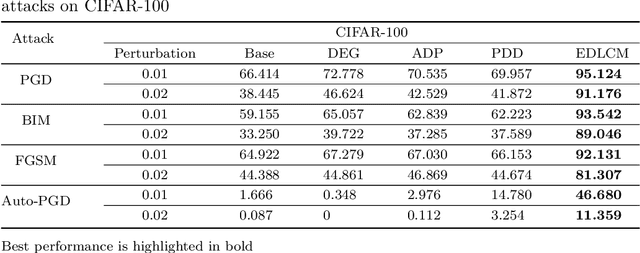Ensemble Adversarial Defense via Integration of Multiple Dispersed Low Curvature Models
Paper and Code
Mar 25, 2024



The integration of an ensemble of deep learning models has been extensively explored to enhance defense against adversarial attacks. The diversity among sub-models increases the attack cost required to deceive the majority of the ensemble, thereby improving the adversarial robustness. While existing approaches mainly center on increasing diversity in feature representations or dispersion of first-order gradients with respect to input, the limited correlation between these diversity metrics and adversarial robustness constrains the performance of ensemble adversarial defense. In this work, we aim to enhance ensemble diversity by reducing attack transferability. We identify second-order gradients, which depict the loss curvature, as a key factor in adversarial robustness. Computing the Hessian matrix involved in second-order gradients is computationally expensive. To address this, we approximate the Hessian-vector product using differential approximation. Given that low curvature provides better robustness, our ensemble model was designed to consider the influence of curvature among different sub-models. We introduce a novel regularizer to train multiple more-diverse low-curvature network models. Extensive experiments across various datasets demonstrate that our ensemble model exhibits superior robustness against a range of attacks, underscoring the effectiveness of our approach.
 Add to Chrome
Add to Chrome Add to Firefox
Add to Firefox Add to Edge
Add to Edge